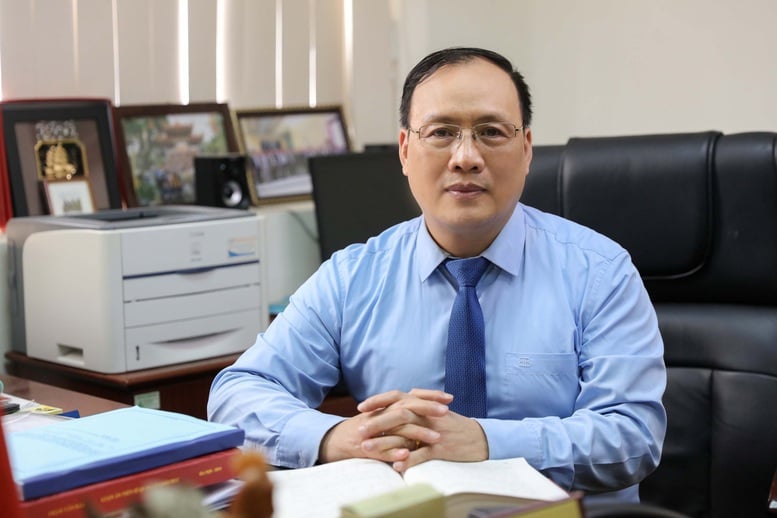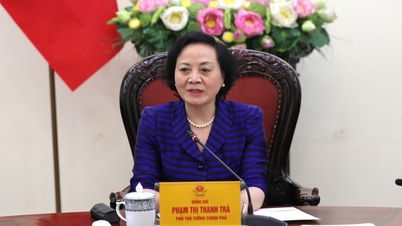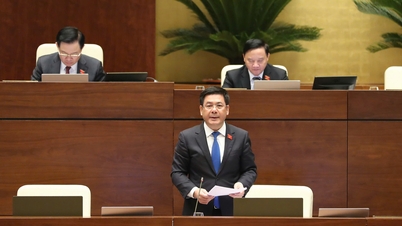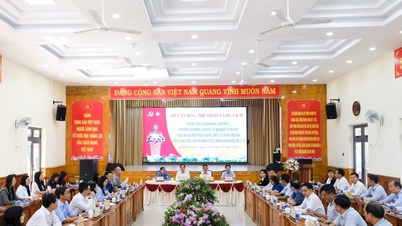Over the past years, the network of higher education institutions in Vietnam has developed rapidly but is still scattered, fragmented, small-scale and has overlapping fields. This situation has caused resources to be divided, making it difficult to form strong universities that can compete regionally and internationally. Analyzing this situation clearly, Prof. Dr. Nguyen Dinh Duc, former Chairman of the Council of the University of Technology (VNU), said that the dispersion of resources has reduced the opportunity to form leading universities with a position on the international academic map.
According to Prof. Dr. Nguyen Dinh Duc, university mergers are not only a solution for organizational models but also a strategic transformation process, aiming to improve intellectual capacity, training quality, research, innovation and resource efficiency. He affirmed that from the experiences of many countries such as Japan, Korea, France, Germany or the Nordic countries, Vietnam can draw 5 important lessons that are directly referenced.

Prof. Dr. Nguyen Dinh Duc shares international experiences in restructuring the university system.
With vision and autonomy, mergers go the long way.
First, many countries only undertake mergers within the framework of national strategies, linked to a long-term vision of the role of universities in the knowledge economy .
For example, Professor Duc recalled Japan's restructuring of its public university system in the early 2000s, aiming to build strong, autonomous, and globally competitive national universities. From this, it can be seen that Vietnam also needs a master plan, clearly defining the mission of each institution after the merger and stratification throughout the system.
In addition, autonomy and transparency are considered prerequisites for success. Experience from Korea and Finland shows that mergers are only effective when schools are given academic and financial autonomy, the right to shape their governance model, recruit, develop programs and expand business cooperation.
Professor Nguyen Dinh Duc emphasized that if autonomy does not go hand in hand with mergers, the consolidation process can easily fall into formality or create additional institutional burdens. He further analyzed that maintaining the role of the University Council as in the 2018 revised Law on Higher Education is the key to controlling power and promoting innovation. Therefore, mergers must go hand in hand with substantial, comprehensive and profound autonomy.
Academic collaboration to give the school more momentum
Many countries have failed because of "paper" mergers, which only consolidated the apparatus but did not create academic value. According to the analysis of Professor Nguyen Dinh Duc, lessons from France and Germany show that "Comprehensive Universities" are only successful when the merger goes into academic depth, including sharing laboratories, research resources and building interdisciplinary programs. Vietnam needs to prioritize this goal: mergers must create new academic capacity, increase research strength, not just transform the administrative structure.
Along with that, respect for culture and people is also a decisive factor. Japan believes that merging schools with different traditions cannot be done by administrative order.
Citing the Japanese model, Professor Nguyen Dinh Duc said the country has adopted a soft roadmap, encouraging lecturers, students and unions to participate in the process, thereby maintaining its identity and creating a multicultural academic environment. Vietnam, he said, needs to manage change through dialogue, transparency and consensus.
Finally, European countries all consider quality assurance and research capacity as a measure of evaluation after mergers. Universities such as Aalto University (Finland) or Université Paris-Saclay (France) quickly rose to high rankings thanks to their focus on innovation and business partnerships. The professor affirmed that Vietnam also needs to build an evaluation mechanism based on the quality of training and research, instead of just relying on the scale or number of merged units.
Professor Nguyen Dinh Duc said that if implemented carefully and on schedule, university mergers will contribute to streamlining the system, promoting autonomy, increasing investment efficiency and creating a foundation for the formation of strong universities, international integration, becoming pillars in the national innovation ecosystem. He further emphasized that this is an important opportunity for Vietnam to break through and form universities that are truly regional and international in scope.
Thu Trang
Source: https://baochinhphu.vn/sap-xep-lai-he-thong-dai-hoc-de-tao-nen-nhung-truong-mang-tam-khu-vuc-102251114113623135.htm


![[Photo] Unique art of painting Tuong masks](https://vphoto.vietnam.vn/thumb/1200x675/vietnam/resource/IMAGE/2025/11/14/1763094089301_ndo_br_1-jpg.webp)

![[Photo] Unique architecture of the deepest metro station in France](https://vphoto.vietnam.vn/thumb/1200x675/vietnam/resource/IMAGE/2025/11/14/1763107592365_ga-sau-nhat-nuoc-phap-duy-1-6403-jpg.webp)






















![[Photo] Special class in Tra Linh](https://vphoto.vietnam.vn/thumb/1200x675/vietnam/resource/IMAGE/2025/11/14/1763078485441_ndo_br_lop-hoc-7-jpg.webp)












































































Comment (0)